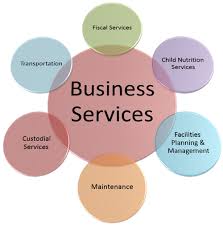Business Excellence 2025, In today’s competitive landscape, businesses of all sizes face an ever-evolving challenge to stay ahead of the curve. For ambitious companies aiming to achieve long-term success, the pursuit of business excellence becomes paramount. Business excellence refers to a framework for improving an organization’s processes, culture, and performance in a sustainable way. Achieving business excellence often requires professional services that specialize in various aspects of business strategy, operations, and leadership.
This article explores the concept of business excellence, the role of professional services, and how ambitious companies can leverage these services to achieve growth, innovation, and market leadership. We will also dive into the various aspects of business excellence, ranging from strategic planning and operational efficiency to employee engagement and customer satisfaction.
1. What is Business Excellence?
Business excellence is a comprehensive approach to improving an organization’s performance by focusing on continuous improvement, customer satisfaction, and long-term sustainability. It encompasses various models, frameworks, and strategies designed to optimize processes, products, and services. The core principle of business excellence is aligning all aspects of the organization toward a common goal—delivering value to customers while maintaining profitability and competitive advantage.
A common framework for achieving business excellence is the EFQM Excellence Model (European Foundation for Quality Management), which focuses on nine criteria including leadership, strategy, customer results, people, processes, societal results, and business results.
Business excellence involves a commitment from top management to set a clear vision, empower employees, and drive innovation while staying responsive to market dynamics. For ambitious companies, it is a vital pathway to sustaining growth and improving operational efficiency.
2. The Importance of Business Excellence for Ambitious Companies
Ambitious companies, particularly those aiming for rapid growth, must build and maintain a competitive edge in their respective industries. Business excellence 2025 is the cornerstone that enables companies to achieve this. Here are several key reasons why business excellence is important:
2.1 Competitive Advantage
In a fast-paced, globalized market, businesses must consistently innovate to outperform competitors. Business excellence frameworks provide companies with the tools to develop a robust strategy that allows them to lead in areas such as quality, efficiency, and customer satisfaction. It creates differentiation by delivering products and services that exceed customer expectations.
2.2 Sustainability
Business excellence promotes long-term sustainability by encouraging companies to adopt practices that reduce waste, improve resource management, and promote corporate social responsibility. By embracing sustainable practices, companies can build trust with stakeholders and improve their public image.
2.3 Operational Efficiency
Business excellence emphasizes continuous improvement through efficient processes, which results in cost reductions and streamlined operations. This ensures that ambitious companies maximize their productivity and profitability without compromising quality.
2.4 Employee Engagement
Achieving business excellence 2025 requires engaging and empowering employees at all levels. When employees feel valued, they are more likely to contribute positively to the organization’s goals. A highly engaged workforce boosts morale, reduces turnover, and drives innovation.
3. Key Elements of Business Excellence 2025
Business excellence 2025 is built upon several key pillars that, when executed correctly, lead to a sustainable and high-performing organization. These elements include leadership, strategy, customer focus, measurement and analysis, workforce engagement, and process optimization.
3.1 Leadership
Effective leadership is the foundation of business excellence. Leaders in high-performing organizations set clear goals, foster a culture of innovation, and inspire their teams. A strong leadership team can align the company’s vision with actionable strategies and ensure that all employees understand their roles in achieving excellence.
3.2 Strategy
A clear and well-defined strategy enables companies to focus on key priorities and long-term objectives. Strategic planning should consider market trends, customer needs, competitive forces, and internal capabilities. Ambitious companies use business excellence frameworks to ensure that their strategies are agile, customer-centric, and aligned with broader organizational goals.
3.3 Customers
Customer satisfaction and loyalty are central to business excellence. By prioritizing customer needs and feedback, companies can develop solutions that address pain points and exceed expectations. This customer-centric approach leads to increased customer retention, brand loyalty, and ultimately, profitability.
3.4 Measurement, Analysis, and Knowledge Management
Measuring performance is critical to identifying areas for improvement. Business excellence frameworks emphasize the importance of data-driven decision-making. By leveraging key performance indicators (KPIs), companies can assess their progress and refine strategies based on real-time insights. Knowledge management ensures that valuable information and best practices are shared across the organization.
3.5 Workforce
A highly skilled and motivated workforce is essential for achieving business excellence. Employee training, development programs, and recognition initiatives are important for fostering a culture of continuous improvement. Involving employees in decision-making and empowering them with the right tools ensures that they contribute to the company’s success.
3.6 Processes
Optimizing business processes is another crucial aspect of business excellence. Streamlining workflows, reducing inefficiencies, and embracing automation helps companies cut costs and improve operational efficiency. Process excellence also supports the delivery of high-quality products and services.
3.7 Results
Finally, the results of business excellence should be measurable. This includes not only financial results but also non-financial outcomes such as customer satisfaction, employee engagement, and environmental impact. By regularly monitoring results, businesses can ensure they are on the right track and make adjustments where needed.
4. The Role of Professional Services in Achieving Business Excellence
Professional services play a critical role in helping ambitious companies achieve business excellence. These services provide expertise and specialized knowledge that are essential for implementing the strategies, processes, and systems needed for long-term success.
4.1 Consulting Services
Consulting services help businesses identify gaps in their operations, develop strategic plans, and provide guidance on best practices. Consultants are often experts in specific industries or functional areas such as finance, marketing, operations, and human resources. By leveraging the knowledge of consultants, companies can accelerate their journey to business excellence and avoid common pitfalls.
4.2 Strategy Development and Implementation
Strategic consultants assist companies in developing clear, actionable plans for growth. They help businesses set priorities, analyze market conditions, and implement strategies that drive competitive advantage. A well-crafted strategy, supported by a clear execution plan, enables businesses to achieve operational excellence and scale effectively.
4.3 Operational Improvement
Operational excellence requires constant monitoring and optimization of processes. Professional services can help businesses identify inefficiencies, streamline workflows, and implement best practices to improve productivity. Tools like Lean Six Sigma and Total Quality Management (TQM) are often utilized by consultants to achieve these goals.
4.4 Technology and Digital Transformation
In the digital age, technology plays a critical role in business excellence. Professional services help companies adopt new technologies and digital tools that can improve their operations, customer experiences, and product offerings. Digital transformation strategies may include automation, data analytics, and the implementation of enterprise resource planning (ERP) systems.
4.5 Organizational Change Management
Change management is crucial when adopting new strategies or technologies. Professional service providers with expertise in change management can help companies navigate transitions smoothly. This includes preparing employees for change, providing training, and ensuring the organizational culture aligns with new initiatives.
5. How to Choose the Right Professional Service Provider
Choosing the right professional service provider is critical to achieving business excellence. Here are several factors to consider when making this decision:
5.1 Expertise and Experience
Look for a provider with extensive experience in your industry or functional area. An experienced consultant will be able to understand the unique challenges your business faces and provide tailored solutions.
5.2 Reputation
Research the provider’s reputation by checking client testimonials, case studies, and industry recognition. Positive feedback and a proven track record are indicators of the provider’s ability to deliver value.
5.3 Customization
Each business is unique, so it’s important that the service provider offers customized solutions. Avoid one-size-fits-all approaches and seek providers who can tailor their services to meet your specific needs.
5.4 Results-Oriented Approach
Choose a service provider who is focused on achieving measurable results. Look for firms that emphasize key performance indicators (KPIs) and data-driven insights to track progress and make adjustments as needed.
5.5 Cultural Fit
The professional services provider should align with your company’s values and culture. A provider who understands your business culture will be more effective in driving change and getting buy-in from your team.
6. Case Studies of Successful Business Excellence
Case Study 1: XYZ Corporation
XYZ Corporation, a leading manufacturer of consumer electronics, partnered with a consulting firm to implement a business excellence framework. By focusing on process optimization and customer satisfaction, XYZ reduced production costs by 20% and increased customer loyalty by 15%. The result was a 25% increase in overall profitability.
Case Study 2: ABC Retailers
ABC Retailers, a fast-growing e-commerce company, engaged a professional service provider to develop a digital transformation strategy. With the implementation of advanced analytics and automation, ABC reduced operational inefficiencies by 30% and saw a significant increase in sales.
7. Challenges in Achieving Business Excellence
While business excellence offers many benefits, there are also challenges in achieving it. These challenges include:
- Resistance to Change: Employees may be resistant to new processes, technologies, or strategies.
- Lack of Resources: Implementing business excellence requires investment in time, talent, and technology.
- Overlooking Customer Needs: Organizations may focus too much on internal improvements and neglect the customer experience.
- Sustaining Momentum: Maintaining continuous improvement requires constant vigilance and commitment from leadership.
8. Frequently Asked Questions (FAQs)
Q1: What is the difference between business excellence and business efficiency?
A1: Business excellence focuses on improving all aspects of a company, including leadership, strategy, and customer focus, while business efficiency primarily emphasizes optimizing processes to reduce costs and improve productivity.
Q2: How can professional services help in achieving business excellence?
A2: Professional services provide expertise in strategy development, process optimization, technology implementation, and change management. These services help companies create actionable plans and implement best practices to achieve excellence.
Q3: How long does it take to achieve business excellence?
A3: The time it takes to achieve business excellence varies depending on the size of the organization, the complexity of the changes required, and the commitment to the process. It is typically a long-term, continuous journey.
Q4: Is business excellence only for large companies?
A4: No, business excellence is beneficial for companies of all sizes. Small and medium-sized businesses can also leverage business excellence frameworks to improve their operations, customer service, and financial performance.
Q5: What are the first steps to implement business excellence in my company?
A5: The first step is to assess your current operations, define your goals, and identify areas for improvement. Engaging with professional service providers can help you develop a strategy for achieving excellence and creating a roadmap for success.
Conclusion
In conclusion, business excellence is an ongoing journey that requires commitment, strategy, and continuous improvement. Ambitious companies can achieve significant success by leveraging professional services tailored to their needs, ensuring a focus on quality, efficiency, and long-term growth. By embedding business excellence 2025 into their operations, companies can not only stay competitive but also lead their industries through innovation, customer satisfaction, and sustainable performance.




